No Limits to Growth: MUOs carve their own paths to success

Growing as a multi-unit operator requires a mixture of discipline and flexibility. Past business experience and advice from mentors can help, but challenges are guaranteed to stack on top of one other. However, there are a variety of ways to respond.
Some rely on debt or investors to grow. Nathan Garn, president of Sizzling Platter, says, “If something comes up that’s opportunistic, having the ability to tap into resources through debt in a quick way is part of our strategy.”
Others, such as Tara McLain, owner of the McLain Spa Group, take a deliberate approach, using cash flow from existing businesses. “Each business builds the next business,” she says.
Money is far from the only concern. Is it better to build new units or acquire them from other owners? What kind of staffing is needed? Which brand or brands best align with the development strategy? What kind of infrastructure is needed for sustained growth? The questions go on, and different operators answer in distinct ways.
There will always be a place for single-unit operators willing to put in 50- and 60-hour weeks to serve their customers and build lives for themselves and their families. However, multi-unit operators have been growing their collective share of the franchise industry. According to FRANdata, there were approximately 44,000 multi-unit operators in 2022, accounting for 53.9% of the franchised units in the U.S.
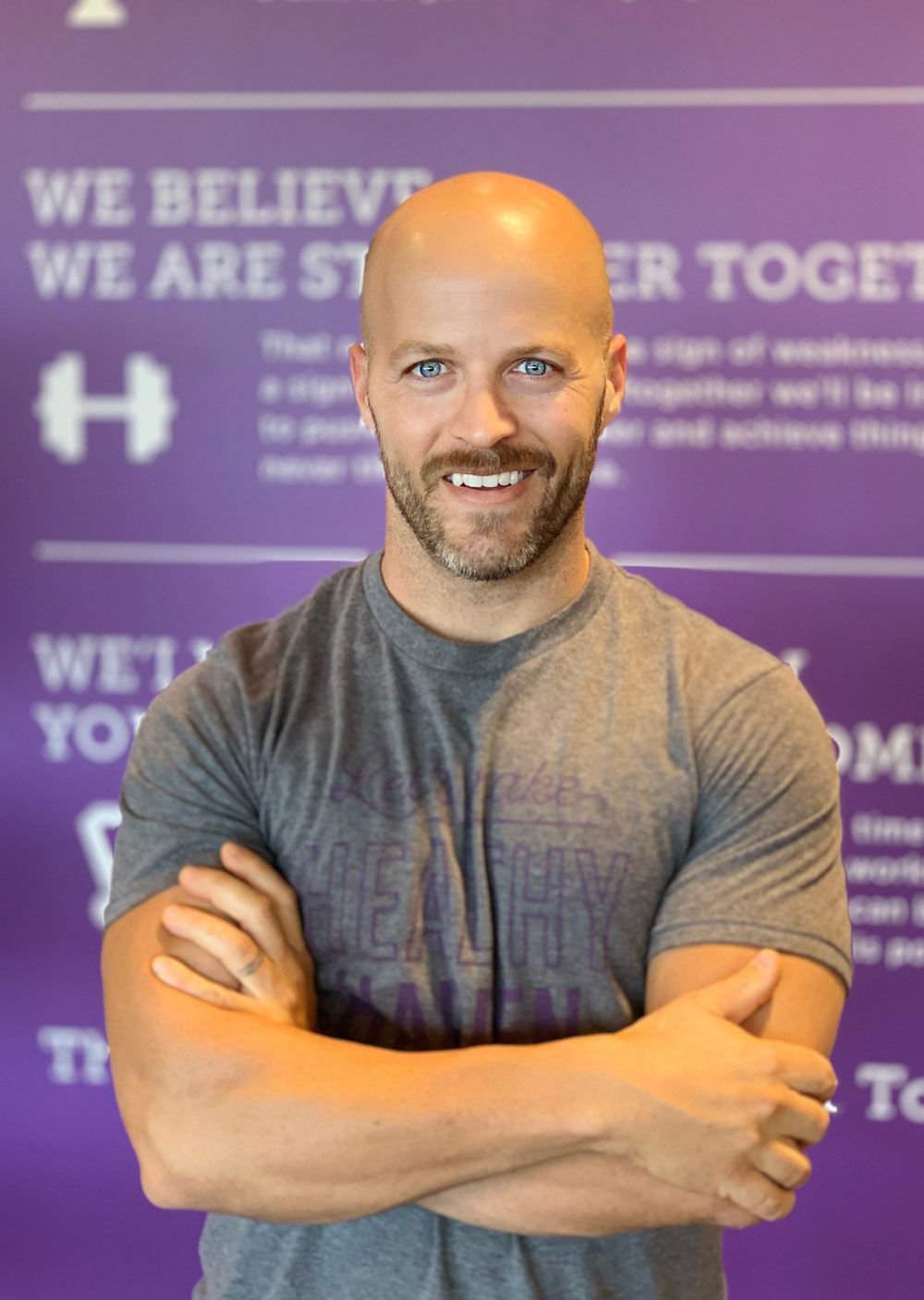
Passion for the gym
Luke Andrus, CEO of Blue Star Investments, says membership-based franchises have unique challenges. His company owns 32 Anytime Fitness locations in 9 states. “Fitness is hard. It’s not easy to run a gym. We’re selling something that, even after you buy, you don’t want to use it,” he says with a laugh.
Even so, his company is aggressively pursuing more locations. “Our approach is let’s be the largest Anytime Fitness franchisee there is,” he says. “Right now, I’d say we are in the top five, but we’re kind of on that line. One day, we’re number six, one day, we’re number five.”
Blue Star uses a mixture of cash flow and debt to purchase existing locations and build new ones. The strategy focuses heavily on buying locations for several reasons—and because they come with members. “I can close on a location in seven or eight weeks, but it takes a year for me to build a new one,” says Andrus. He prefers to purchase solidly performing units because, he says, “We’d rather take them from good to great than from bad to good.”
Although his team has laid out a plan for growth, Andrus says, “It never goes according to plan.” As the organization grows, his team often has to stretch and cover extra work. “We’re always looking ahead and strategizing on what our next moves are,” he says, “and what roles we need to fill. After we stretch ourselves a little bit, we bring relief to our teams.”
Before joining Blue Star, Andrus worked at Anytime Fitness corporate, where he developed an appreciation for the executive team’s approach to the business. “I give credit to great leaders like Chuck Runyon and Dave Mortensen, the two founders of Anytime Fitness,” he says. “I’ve had the privilege of knowing those guys personally and being an employee of theirs. That’s taught me how I want to be with my team.”
Andrus says he has a deep respect for the brand and its mission to transform lives, so he’s able to encourage his management team to help members stick to their wellness goals. “I have to lead this company with passion and purpose because fitness is an industry of passion and purpose,” he says. “You’re not punching in and punching out. You have to be a beacon of light for every member that we have.”
In addition to in-person meetings, Zoom, Slack, and other platforms are used to deliver the company culture. Employees also understand what revenue targets are expected each month.
“I’ve got to go in there and give them direction, and I’ve got to lead those guys and put them in a position to succeed,” Andrus says. “We also bonus based on those goals. If we’re not completely clear on what we expect from them, then they can’t maximize their potential with us. We’re doing them a disservice if we don’t do that.”
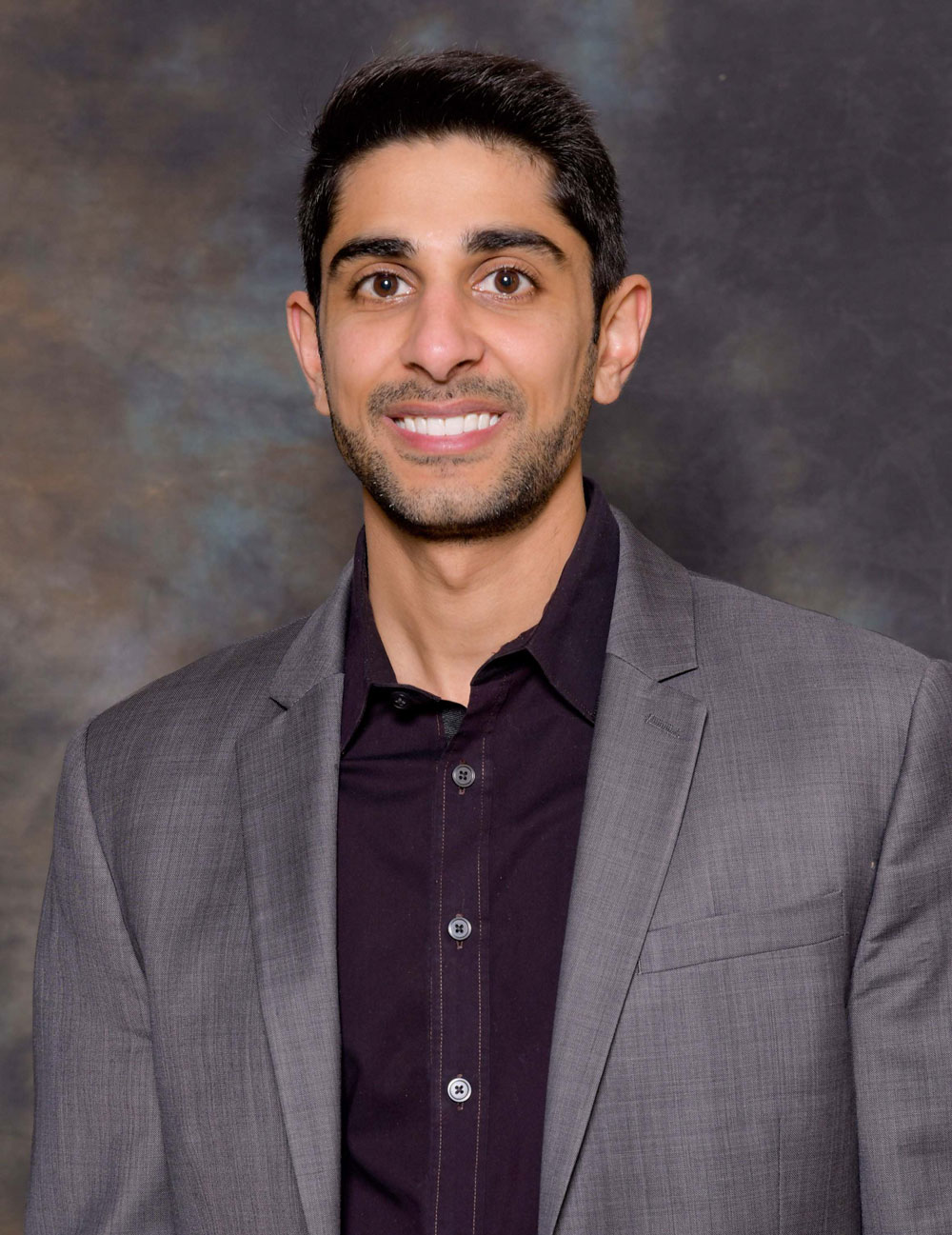
Working with partners
The Chunara Group of Companies started in the mid-1980s with one restaurant. Now, there are more than 160. Most are restaurants, including Dunkin’, Rally’s, Kale Me Crazy, and BurgerFi. The company also owns Take 5 Oil Change locations.
Over the years, the Chunara Group developed its own pathway for growth. Shehzaan Chunara, the group’s vice president, says the company works with operating partners who manage the units. “Anytime we have new partners that come in with us,” he says, “they are coached and guided by our existing partners who have all the experience and have been with us for years and years. Whether it’s the paperwork or the operations, we’ll find a partner that’s within that brand and try to pair them up so they can learn directly from them.”
As a company, the Chunara Group doesn’t necessarily have a set plan of units to build or buy each year. Instead, it grows organically as partners present new deals. “We had significant growth the past two years,” he says. “This year, we slowed down a little bit just because of the environment we’re in. We’ll see where the next year takes us.”
The group’s approach has been refined over the years. All deals go through the partnering process, and the Chunara Group retains a 51% interest in each new unit added. The company looks for brands that have relatively small and easy-to-operate footprints. “Nowadays, we don’t like to be with brands that have big buildings that are 3,000 to 3,500 square feet,” says Chunara. “We like a limited scope, especially where employees are cross-trained. The same person taking your payment can make the food or provide the service if it’s an oil change.” A Take 5 Oil Change, for example, requires 1,500 square feet.
The company also shies away from expensive buildout costs and mandatory remodeling plans. “To build a Dunkin’ is very expensive because you’ve got to remodel it every 10 years,” says Chunara. “It’s very expensive. The same with a Popeyes.”
However, joining a new brand is about more than footprints and logistics. Chunara and his father meet face-to-face with the executive team of each company to get a feel for the brand’s direction and leadership team. Chunara says it’s understood that executives can move around. “But, generally speaking, as long as we feel good about the culture and direction of the brand, that would be another step toward pushing us to get into a new brand.”
The Chunara Group doesn’t get involved at the store level, so individual partners are responsible for training and leading their employees. “The way we build a culture for our partners is by ensuring they have no ceiling for growth,” he says. “If they want to grow more stores, I show them that there is literally no stopping with us. You can do as much as you can possibly ask for. You can grow as many units as you want. You can sell them when you want. You can leverage them using the bank if you want to go out and buy a piece of real estate, so the options are endless for our partners to grow with us.”
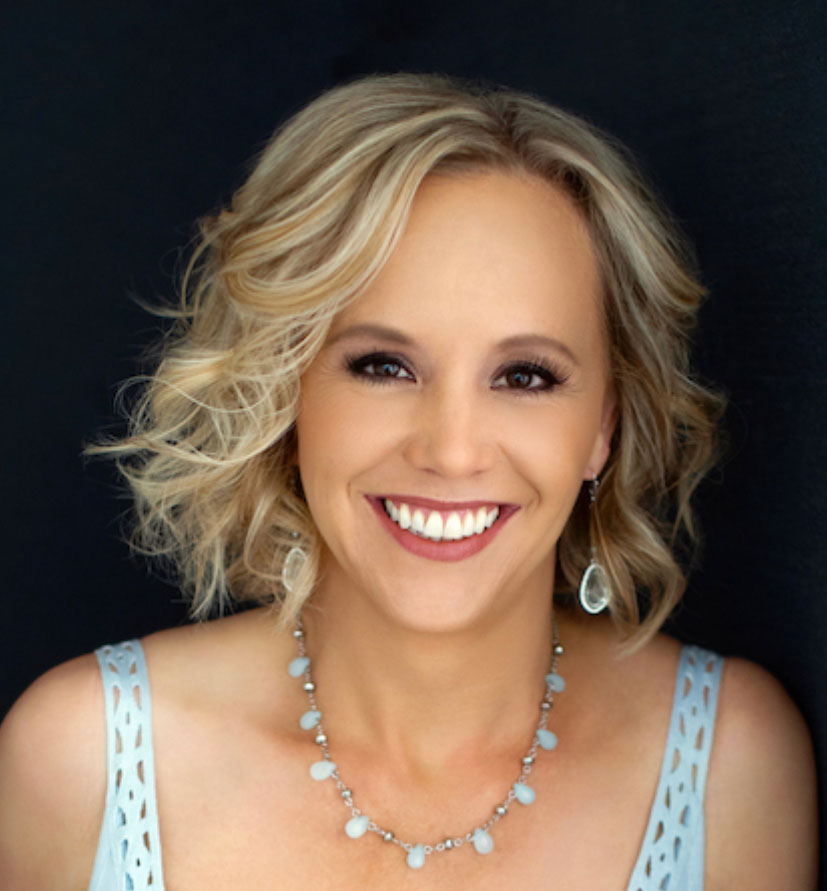
From member to owner
Tara McLain’s relationship with Hand & Stone Massage and Facial Spa began with self-care. She started as a member and was so impressed that she bought her own franchise. That was 11 years ago. She now owns five Hand & Stone spas in Florida.
McLain has taken a slow and steady approach to growing her business. “For me, personally, I use cash flow,” says the owner of the McLain Spa Group. “A lot of people acquire debt and get investors involved, which is a great way to build a multi-unit company, but I have been able to do it with just the cash flow I have coming in from each business. Each business builds the next business.”
When selecting new locations, demographics play a big part in the decision. She avoids areas that have too many potential competitors because that can make it hard to hire the employees she needs. “We have relationships with the various schools in all of our markets,” she says. “We encourage our therapists to bring on their peers and friends who are interested in working for a franchise concept. We also recruit on LinkedIn and Indeed. We find people everywhere.”
She adds that every employee gets a background and reference check. “We don’t just bring on anybody. We try to build a team of really awesome individuals who really believe in massage therapy, in skin care, and in the wellness of their clients.”
The McLain Spa Group has two managers who support the aesthetics team at all locations, and each location has a massage manager on site. In addition, an operations manager oversees the locations and assists McLain as needed. It took a while to arrive at this management structure; she found out the hard way that managers need oversight as much as other employees. “When you grow, there are challenges,” she says. “It was all trial and error. You learn as you go.”
For a time, she considered adding locations in Georgia but thought better of it because regulations for massage businesses vary from state to state. “When do therapists have to renew their licenses, and how many CEU hours do they need to have?” says McLain. “It’s not that it’s hard. It’s just a lot to keep up with, and regulations can change.”
Instead, she’s expanding her Florida business in a different way. She bought the rights to build six Body20 locations. Body20 is an emerging concept that uses electro-muscle stimulation to increase the efficiency of workouts.
“Once you know how to run a membership-based business, I think the concepts are very comparable,” she says. “That definitely helps. I wouldn’t want to go into a food-based franchise, for example, because I know nothing about food.”
By nature, multi-unit operators are problem-solvers. The day-to-day difficulties are real, and so are the rewards. “It’s been a journey for sure,” she says. “It has not been an easy one, but it’s been good.”
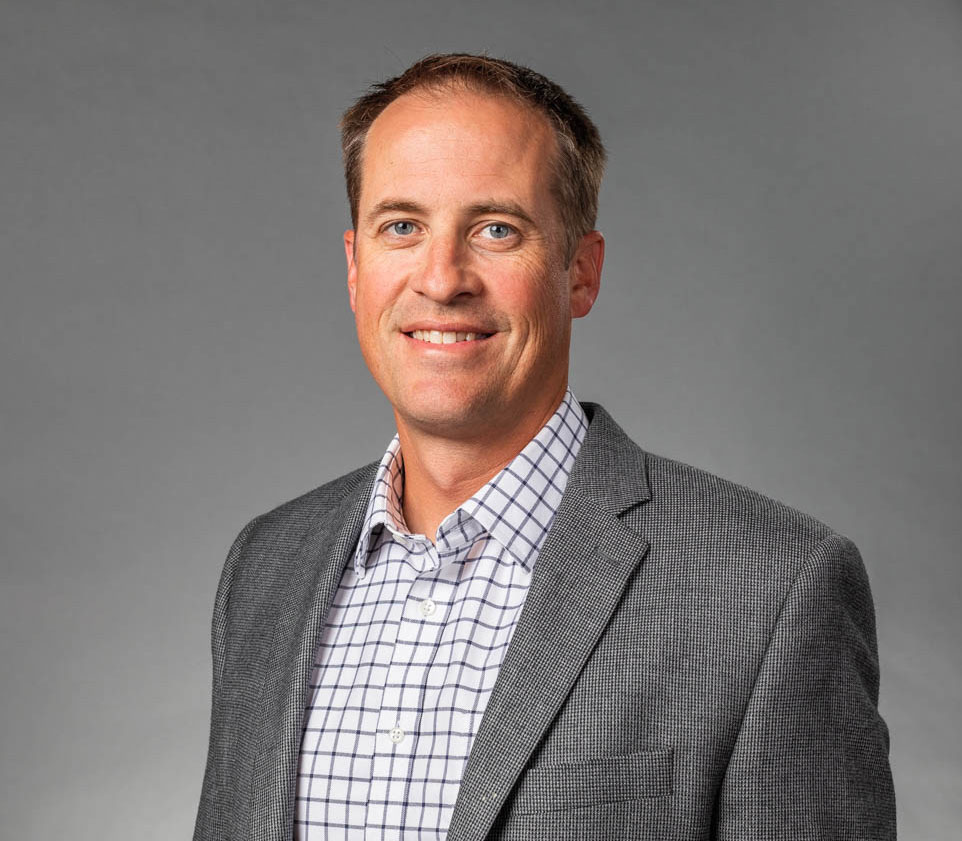
Aggressive growth
True to its name, Utah-based Sizzling Platter began in 1963 with the opening of a Sizzler. The company now owns 8 brands in 17 states and two countries. “Five years ago, we were at 400 locations,” says Nathan Garn, Sizzling Platter’s president. “We expect by the end of the year to be over 700 and be able to build from there.”
In 2019, private equity firm CapitalSpring became a majority owner. “They’re really good partners with deep restaurant experience,” says Garn. “I see that people from the outside would view it as a corporate structure. When you’re living it, you just view it as a business. You have partners, and everyone is working together to grow.”
Garn says many longtime franchisees are reaching the point where they’re ready to sell their businesses and retire. “I would say the vast majority of the stores that we acquire are from friends of ours who just call and say, ‘Hey, this is what I’m thinking. Do you guys have any interest?’”
At Sizzling Platter, each deal is treated as a form of public relations or marketing to other franchisees who might be looking to sell. “If we buy some stores from an operator in you-name-the-state, it’s a virtual guarantee that they know every other operator in the state,” says Garn. “If we’re fair and do what’s right for them and their team, it’s logical for them to speak highly of us and recommend us to someone else who wants to exit.”
To sustain growth, the company needs dependable staff members at its stores, so they strive to retain and encourage employees who have good track records at newly acquired locations. “We work really hard to try to provide upward mobility for those people and help integrate them into our company,” says Garn. “We view that as part of the value of the business we’re buying.”
On the financial front, the company has issued a corporate bond and has access to a line of credit. Existing cash flow also helps fund purchases and construction. As Garn said above, “If something comes up that’s opportunistic, having the ability to tap into resources through debt in a quick way is part of our strategy.”
In addition to buying existing locations, Garn says it’s important to keep building new stores. “There’s energy behind that. It’s part of being a good brand partner.” In addition to Sizzler, the company’s holdings are Little Caesars, Jamba, Wingstop, Dunkin’, Jersey Mike’s Subs, Cinnabon, and Red Robin. “We have targets where we feel like we can grow from an infrastructure perspective,” says Garn, “and we want to grow where the brand resonates.”
There also are practical concerns as the company grows. “We like small footprints,” he says. “Think of Jamba, Wingstop, Little Caesars, even Dunkin’. We’re now in Jersey Mike’s. Their real estate model is very efficient and their operating model is very efficient. And we really like the focused team.”
As the business continues to expand, it’s important for Sizzling Platter’s values to align with each brand’s values and culture, because joining forces with a new brand has the potential to become a long relationship. “There are going to be ups and downs, so is it a team that we feel like we can get behind?” says Garn. “Fortunately for us, we feel that way for every brand we’re in.”
Share this Feature
Recommended Reading:
FRANCHISE TOPICS
- Multi-Unit Franchising
- Get Started in Franchising
- Franchise Growth
- Franchise Operations
- Open New Units
- Franchise Leadership
- Franchise Marketing
- Technology
- Franchise Law
- Franchise Awards
- Franchise Rankings
- Franchise Trends
- Franchise Development
- Featured Franchise Stories
FEATURED IN
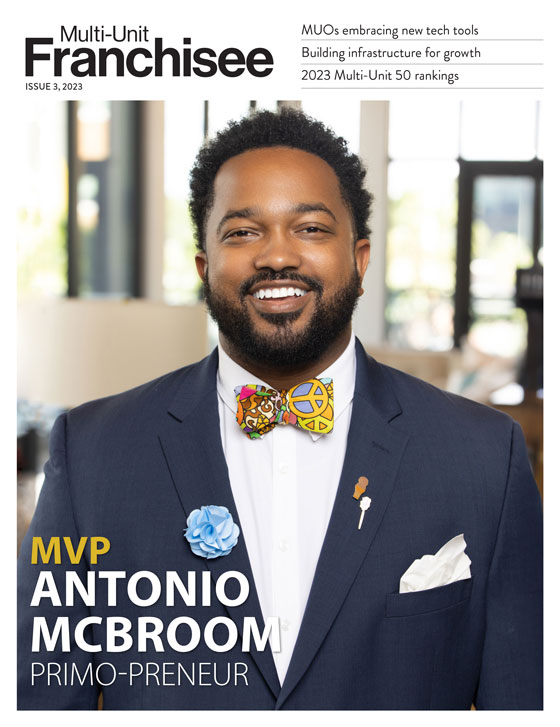
Multi-Unit Franchisee Magazine: Issue 3, 2023

$250,000
$65,000

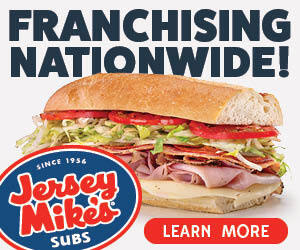



 The multi-unit franchise opportunities listed above are not related to or endorsed by Multi-Unit Franchisee or Franchise Update Media Group. We are not engaged in, supporting, or endorsing any specific franchise, business opportunity, company or individual. No statement in this site is to be construed as a recommendation. We encourage prospective franchise buyers to perform extensive due diligence when considering a franchise opportunity.
The multi-unit franchise opportunities listed above are not related to or endorsed by Multi-Unit Franchisee or Franchise Update Media Group. We are not engaged in, supporting, or endorsing any specific franchise, business opportunity, company or individual. No statement in this site is to be construed as a recommendation. We encourage prospective franchise buyers to perform extensive due diligence when considering a franchise opportunity.